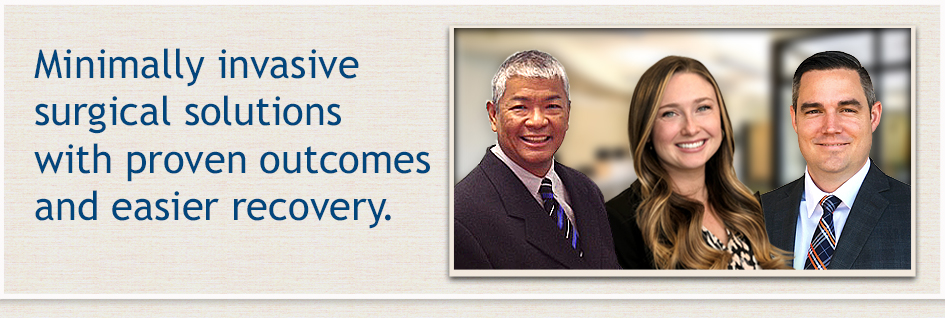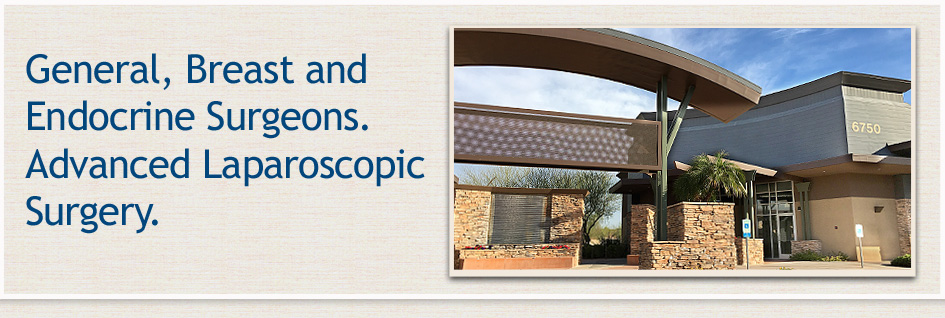Skin Cysts (Lumps & Bumps) | Skin & Soft Tissue Lesions/Lipomas & Lymphomas
The team of Doctors Allen A. Agapay and Jordan J. Glenn are experienced at the diagnosis and treatment of skin and soft tissue problems such as sebaceous cysts, epidermoid cysts, lipomas, angiolipomas, and skin tags. They also perform more complicated surgical procedures to treat skin and soft tissue cancers. While most lumps are benign, it is important to get them checked out to be sure exactly what they are and whether or not they need treatment.
Lipomas are the most common noncancerous soft tissue growth. They are benign fatty tissue tumors that are soft, mobile and usually painless. They are frequently found on the torso, neck, upper thighs, upper arms, and armpits, but they can occur almost anywhere in the body.
Angiolipomas are similar to lipomas, but can be more firm and tender. These benign skin lesions are frequently removed in the office with local anesthetic. If they are large or firmly attached to the underlying muscle layer, your doctor may recommend removing them in an outpatient setting where the patient can be asleep.
Epidermoid and Sebaceous Cysts are benign collections of keratin, fat and/or oil. These cysts are usually painless, unless they rupture, which can cause a significant inflammatory response. If this happens, inflammation is usually remedied at home with warm compresses, ibuprofen and time. These cysts can be removed when they are not ruptured and inflamed.
Skin tags are benign lesions.
Treatment
Lipomas, benign cysts and skin tags can usually be removed in the office with local anesthetic. Sometimes, depending on their size and location, your doctor will recommend excision in an outpatient setting where the patient can be asleep.
Lymphomas
Lymphoma is a cancer that starts in cells that are part of the body's immune system. There are many subtypes of lymphomas. The two main categories of lymphomas are Hodgkin's and non-Hodgkin. Both are cancers that develop in the lymph system and have similar symptoms and characteristics. Hodgkin's lymphoma is distinguished by the presence of abnormal white blood cells called Reed-Sternberg cells.
Symptoms
Signs and symptoms may include:
- Enlarged lymph nodes
- Fever
- Drenching sweats
- Feeling very tired
- Weight loss for no known reason
- Skin rash or itchy skin
Diagnosis
- Lymph node biopsy: A fine needle is inserted into your lymph node to remove a sample of cells.
- Bone marrow aspiration and biopsy: The removal of bone marrow and a small piece of bone by inserting a needle into the hipbone or breastbone.
- Medical imaging may be done to determine if the cancer has spread and to where.
Treatment
Surgical biopsies can be used to help diagnose lymphoma. Lymphoma is usually then treated with chemotherapy, radiation therapy immunotherapy, or targeted drug therapy. However, in certain situations surgical treatment may be beneficial. Lymphoma surgery may be performed for splenic lymphomas. Surgical removal of the spleen can help eliminate cancerous cells from the body. Surgery can also be used to drain fluid in the chest that develops as a complication of non-Hodgkin lymphoma. Doctors Agapay and Glenn will work closely with you to determine the best plan of action to treat your lymphoma.

Insurances We Accept
Click the "Learn More" link below for a full list of the insurance plans we accept. If you don’t see your plan on the list, or if you have any questions, please call us at 602-843-8317. Learn More

Arizona Advanced Surgery
Doctors Agapay and Glenn are proud to be a division of Arizona Advanced Surgery. Learn More



